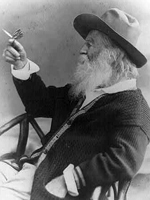Fredericksburg and Spotsylvania National Military Park [VA]
The Fredericksburg and Spotsylvania National Military Park commemorates the greatest loss of life of the Civil War. Between the battles of Spotsylvania (May 8, 1864), Fredericksburg (December 13, 1862), Chancellorsville (May 1-5, 1863), and the Wilderness (May 5-6, 1846), 15,000 men were killed and 85,000 wounded. Major sites include Chatham Manor, Union headquarters and hospital during the Battle of Fredericksburg; the Fredericksburg National Cemetery; the Fredericksburg Confederate Cemetery; Salem Church, Union and Confederate hospital during the Battle of Chancellorsville; the site of Stonewall Jackson's (born 1824), famed Confederate general, death in 1863; and the circa 1790 Ellwood manor, Confederate hospital during the Battle of Chancellorsville and Union hospital during the Battle of the Wilderness.
The park offers a 22-minute introductory film, exhibits, a self-guided driving tour, walking trails, 35- or 45-minute guided walking tours, traveling trunks, traveling canvas floor maps, and Junior Ranger activities. Reservations are required for school groups. The website offers virtual battlefield tours, historic photographs, suggested reading, and lesson plans.
